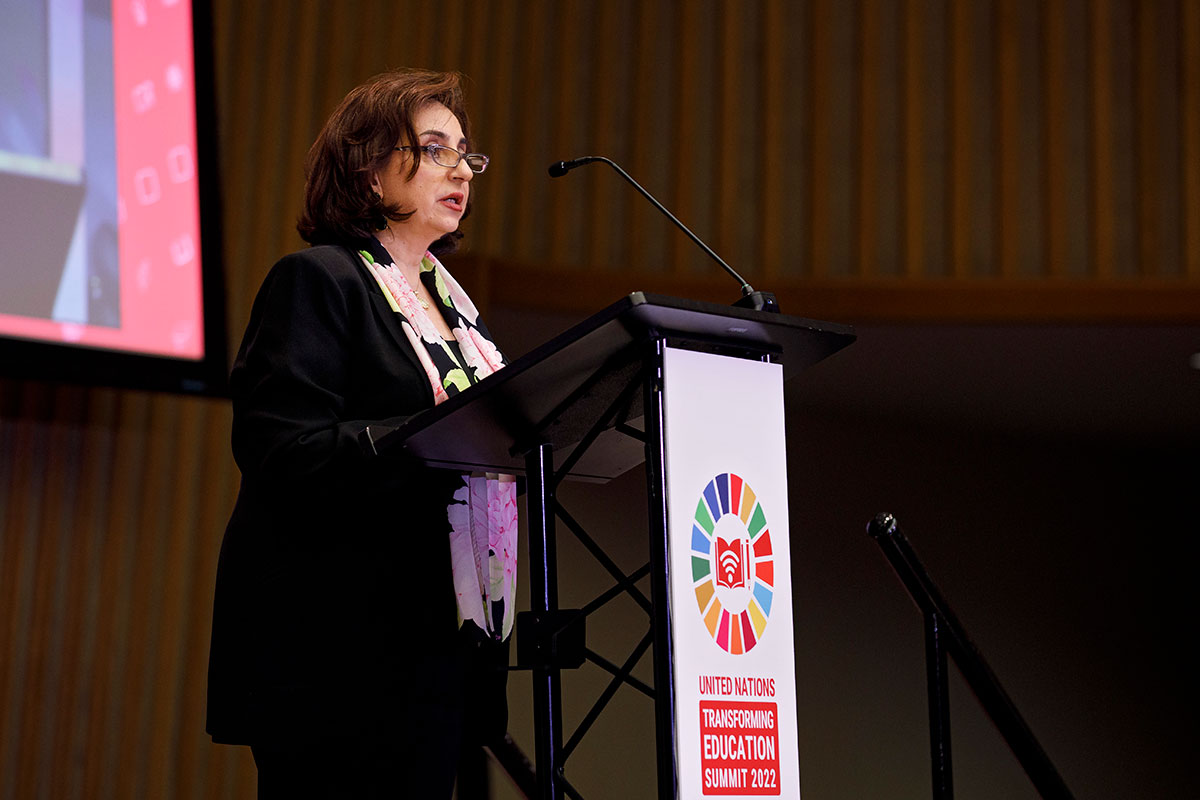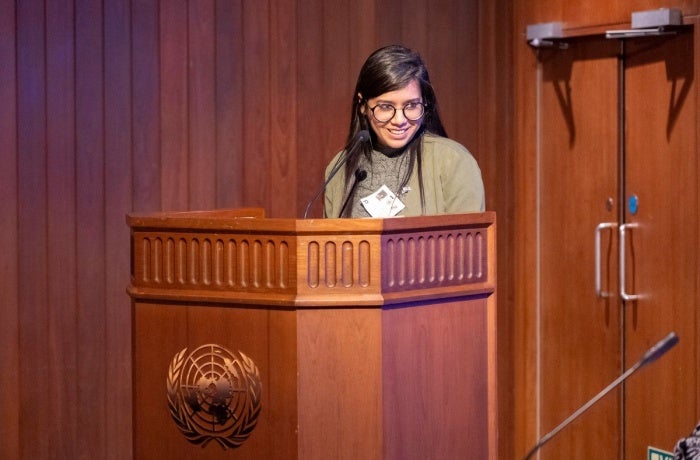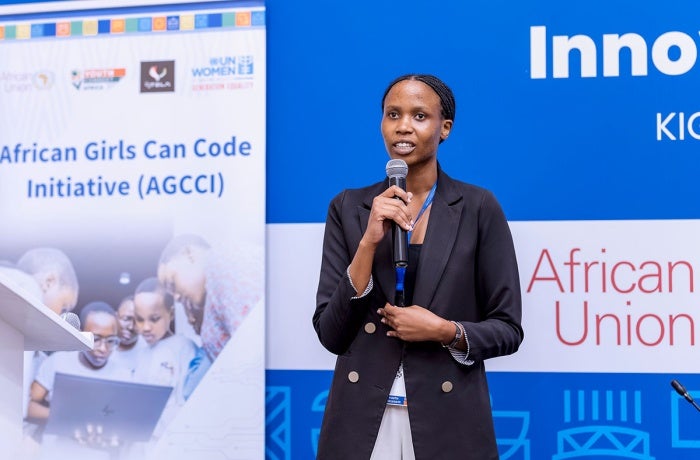Speech: Transform education – transform gender equality
Closing Remarks by Under-Secretary-General of the United Nations and Executive Director of UN Women, Sima Bahous, for Transforming Education Summit (TES) Leaders Day—Spotlight session “Advancing gender equality and girls’ and women’s empowerment in and through education”

[As delivered.]
We can all agree that education is a fundamental right. Yet, as we have heard here today, that right is not consistently afforded to all girls, and especially not to girls facing other challenges and crises. SDG 4 and SDG 5 must go hand-in-hand. The urgent ambition of this conference cannot be divorced from the urgent global context for gender equality.
Earlier this month UN Women published data that show—based on current rates of progress—that women and girls will not achieve full equality with men and boys for another 300 years. We hear every day of rollbacks and threats to the rights that women and girls believed were secure. I don’t think any one of us would want to wait 300 years.
This is why UN Women, and its partners and allies across every sector of society, launched Generation Equality—an urgent acceleration agenda and a call to action for global gender equality. Education lies at the heart of that call to action.
As we have heard so eloquently today, education is critical to building agency, equality, voice and power—yes, power—for the world’s women and girls, in all their diversity.
As we heard Malala say, we need to ensure that we are not working in silos, with a short-term vision. We need to be bold. To achieve that, nothing less than transformation is necessary. As Minister Ndiaye of France said, an education policy needs to be feminist. That is not an option it is an obligation. We must move beyond simply increasing the number of girls and women in education.
We must transform the power relations and the harmful norms, stereotypes and biases that pervade—and degrade—our education systems. We must create safe learning spaces, in person and online, that not only protect girls and women from gender-based violence but propel their creativity, potential and innovation.
We must ensure that the education we offer girls and women truly equips them for the future. Currently women are only 35 per cent of those in STEM education. We must do better, or our world will not do better.
And while we make progress for girls, we must not forget about the millions of adult women who have already missed out on education. They need different educational support as well as access to childcare, safe public transport, training in life skills and decent paid work.
We gather at a time when global gender equality and women’s rights are in acute danger. Education is not only a critical tool to combat this, it is the means to fundamentally improve the lives of women, girls, families and whole communities. We must hold each other accountable for doing so and safeguard our progress.
That is why it is my pleasure to commend today’s Call to Action and Global Platform on Gender Equality and Girls’ and Women’s Education. Taken together, they offer a transformative agenda for action, policy change, financing and bold new partnerships to transform education through an explicit gender lens. A collaborative vision to dismantle gendered barriers and place gender considerations at the heart of education.
When we transform education, we also transform the global trajectory of gender equality. The cause is urgent. We must seize the opportunity together.
I thank you.









